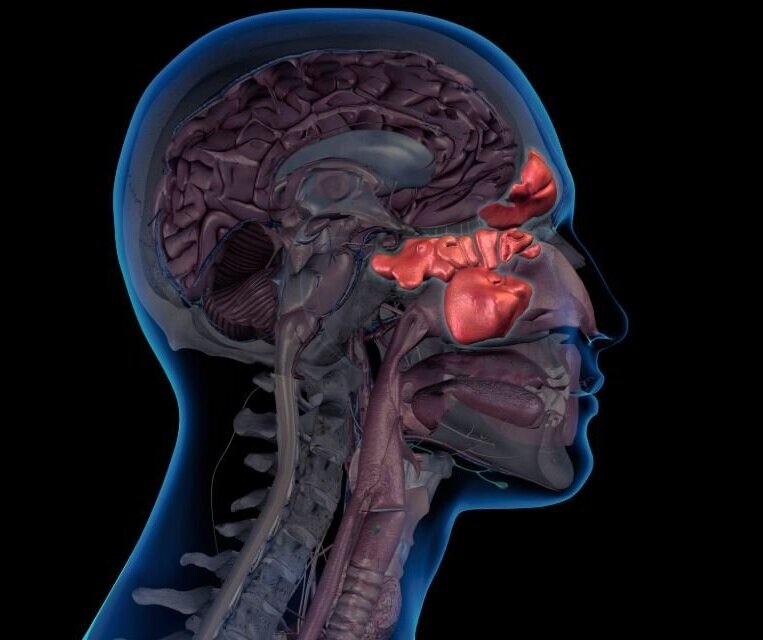
Sinus Surgery
Treatment for chronic sinus disease, nasal polyps, & allergic fungal sinusitis.

Chronic Sinus Disease
Chronic sinusitis occurs when the lining of your sinuses become inflamed for more than 3 months. This may cause significant sinus pressure and pain, nasal congestion, decreased or altered sense of smell, nasal discharge, mild sore throat, cough, sensitivity in upper teeth, low grade fevers, and fatigue.
Common causes of inflammation include infection, exacerbation of allergies, nasal polyps, immune deficiency, or a combination of the above.
Treatment typically involves a combination of oral antibiotics, steroids, and nasal rinses. However, if infection does not clear with prolonged medical therapy or continues to recur, the sinuses may require surgical intervention to drain infection and to open them up for improved circulation and health.
Sinus Surgery
Modern day sinus surgery involves the use of endoscopes (small telescopes) for visualization and specialized instruments to open the natural drainage and function of the sinuses, hence the term Functional Endoscopic Sinus Surgery. Surgery is done through the nose with no external incisions.
Further technological advancements allow your surgeon to use imaging in the form of a CT scan to map the location of surgical instruments in real time. This is called Image Guidance, and significantly decreases the risk of sinus surgery.
Sinus surgery is usually an outpatient procedure. Recovery takes 1-2 weeks with routine follow-up visits during the first 2-3 months for cleaning (debridement). This ensures adequate healing, scar prevention and early intervention should infection or nasal polyps recur.
Sinus surgery is typically needed in place of balloon sinuplasty if there is evidence of allergic fungal sinusitis, nasal polyps or other bony and/or soft tissue growths causing obstruction of the sinuses.



